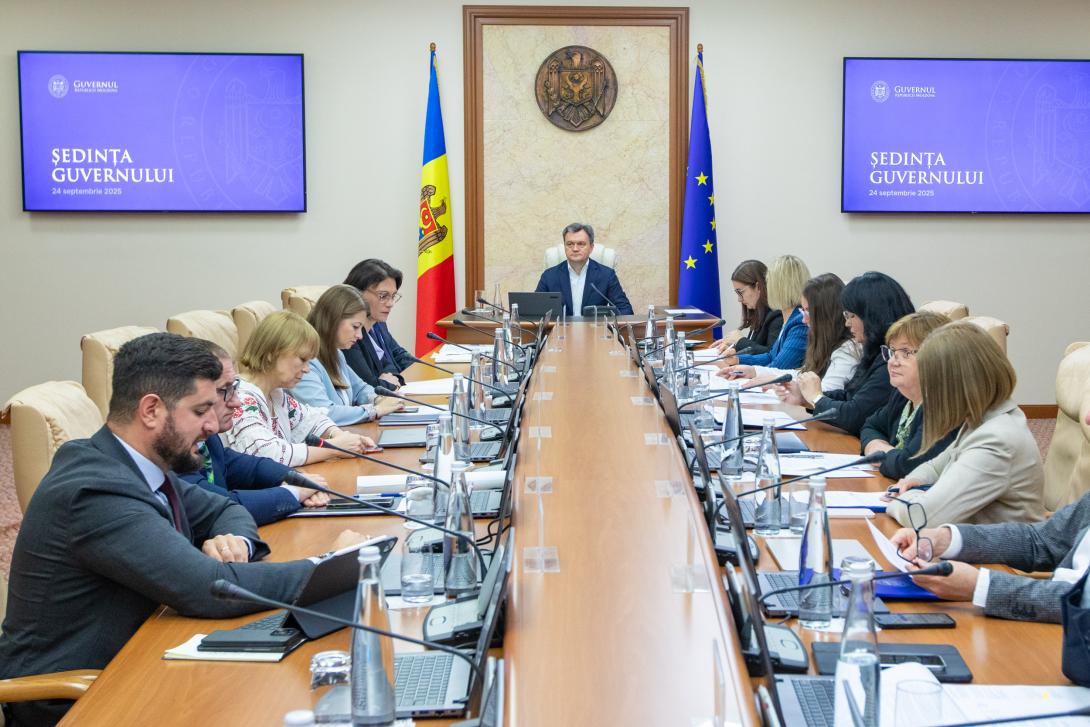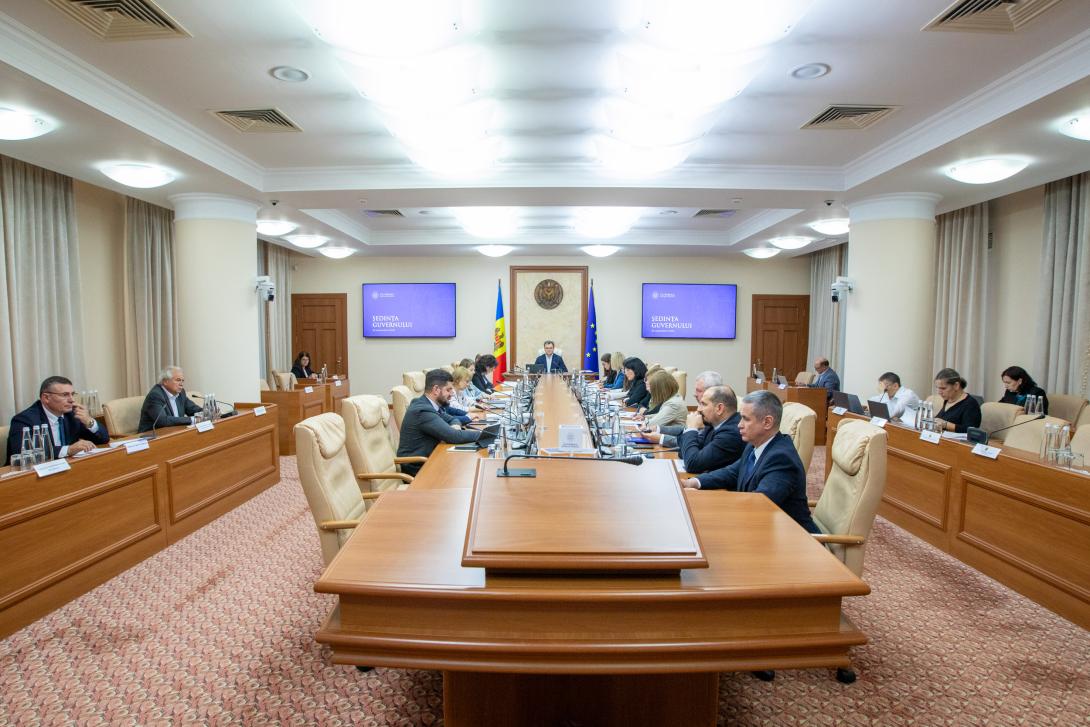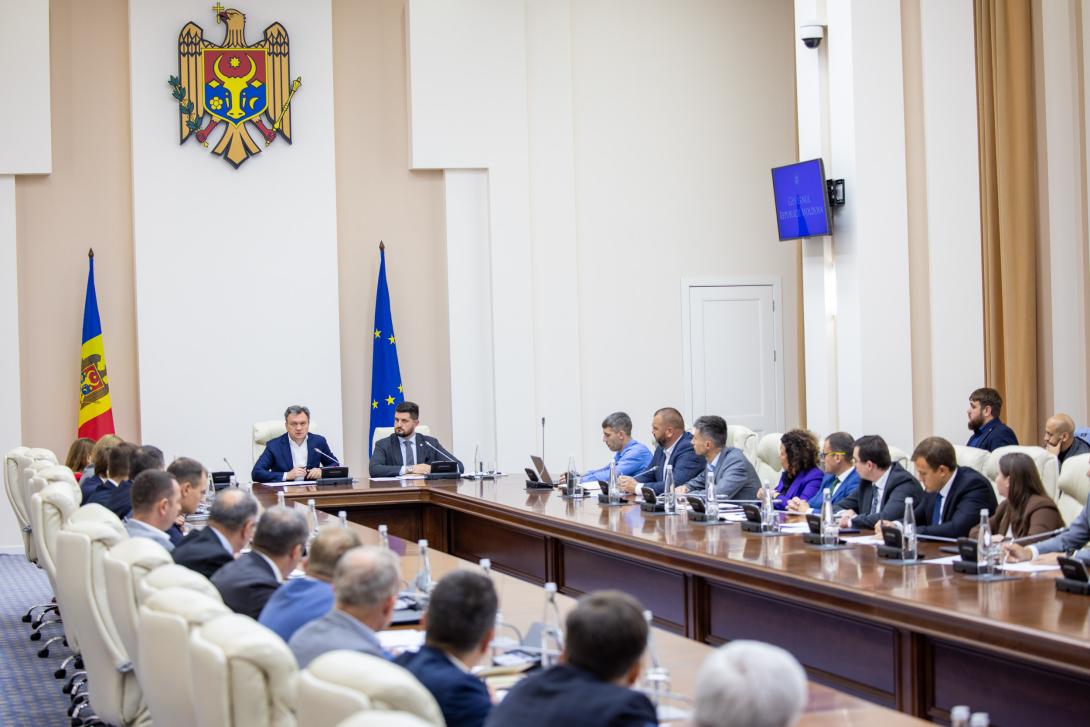The Republic of Moldova is in the midst of an election campaign — and so is the Russian Federation. But while we are campaigning at home, Russia is trying to run its campaign inside our country. Its aim is to seize power in Chișinău, in breach of the sovereign will of Moldovans.
Dear citizens, I know the pressure is growing. The mounting evidence of Russia’s subversive actions has raised alarm across society. Let me assure you: the state of the Republic of Moldova stands firm. We are not only resisting, we are responding firmly, and we will stop any Russian plan of occupation.
We know the Kremlin’s playbook — the state institutions are countering them, one by one. In 2023 and 2024, the honest votes of our citizens thwarted an attempt to capture the Republic of Moldova.
In this election, however, threats are even more serious. The last year’s failure has only pushed the Kremlin to spend more, recruit more people and press harder to influence – and even sabotage – our vote. Their methods are becoming increasingly radical:
Method 1. Recruiting criminal groups to prepare mass disorder
These networks have been prepared for some time — we are uncovering and countering these criminal actions. On Monday, the SIS, IGP and PCCOCS announced the detention of over 70 people. Young people, aged between 19 and 40, were taken to training camps in Serbia, coordinated by operatives from the Russian special services — the so-called GRU — and taught how to provoke violence. They trained with firearms and learnt how to break police lines. Searches uncovered weapons, batons, tents, tens of thousands of euros, camouflage clothing and grenades. Criminal investigations have shown clear link between these people and the Russian services and ties to political parties in Moldova. Russia is also trying to recruit resources from the so-called MGB in the Transnistrian region for acts of vandalism, arson and destabilisation on the right bank.
Method 2. A criminal scheme to buy votes, carried out by the Şor network
Russia is spending hundreds of millions of euros to buy votes in the 28 September election. Our state WILL NOT allow vote theft to become an “electoral coup.” The CNA is conducting 2,500 criminal investigations; dozens of people have been detained, and those organising vote-buying will face prison. There is evidence, including wiretaps, showing that this vote buying is funded by the Russian Federation. The instrument is the Şor criminal group, and the beneficiaries are several electoral contenders.
From 1 August — in just two months — the Police carried out over 600 searches: 273 related to electoral corruption and more than 300 connected to destabilisation attempts.
We are also seeing that some parties financed by the Russian Federation are preparing an electoral corruption scheme known as the “carousel.” How it works: someone enters a polling station with a fake ballot that is put in the box while an authentic ballot is removed, stamped for a target party and then smuggled out. That stamped ballot is handed to the next voter in exchange for money, and is used again at the next polling station.
I call on all members of the polling station bureau and observers to be vigilant and to act according to procedures. I urge voters to report any violations to the electoral offices immediately.
Method 3. Cyber-attacks
This may sound distant from everyday concerns, but these attacks target Moldova’s critical government infrastructure. Why do they do this? To create panic and chaos, and to distort the information reaching the public. They clone websites, break into personal or official accounts, steal citizens’ identities, and distribute false information or virus-infected files. In 2025, more than 1,000 cyber-attacks on government critical infrastructure were identified.
The attacks have targeted the border control system, airport systems, payment systems, digital signature services and communications systems. The ultimate aim is widespread panic and loss of trust in the state’s functioning.
I emphasise: for some time the goal of the Russian services has been to breach our government cyber systems to leak data, sow chaos or use information against the state and citizens.
We are preparing for every scenario. In the event of incidents, please follow announcements on the PRIMA SURSĂ channel and on our official pages. They may try to cut power, stage false bomb alerts, or attack the election information systems to put institutions under pressure. Whatever they attempt, the CEC has the tools to protect the vote. The CEC has stressed that election results are validated by the Constitutional Court on the basis of written protocols — that is, paper records. Digital systems are provided only so citizens can follow the process live; they are not the basis for validation.
Method 4. Massive information poisoning
They create fake accounts and pages every day, fabricate videos, letters and messages — we are facing an unprecedented propaganda onslaught. In the last two months alone, TikTok removed more than 100,000 fake accounts and over 250,000 spam accounts — all part of the information attack on Moldova.
Journalistic investigations into how people are recruited and instructed what to write, how to write, whom to target, and which words to use — thousands of accounts commenting on command. We see identical texts across comments designed to sow distrust and hatred. One leaked instruction to paid posters read: “One month to go until the elections, so I ask you to get involved to the maximum. There will be anti-PAS content now, lots against PAS. We have a lot of work; it will be interesting and it will be paid.”
Dear citizens, this is not an ordinary election. It is a siege on our country.
I call on every Moldovan at home and across Europe: we cannot change what Russia does, but we can change what we do as a people. Turn worry into mobilisation and thoughtful action. Help stop their schemes. If you see a provocation at a polling station or in your village, or if you know of vote-selling, report it to the police. If the power goes out, if the voting process is interrupted, if false bomb alerts occur — as has happened before — do not panic. Listen to the authorities and continue to vote honestly. You hold the power. The state stands with you, and you must stand with the state.
As Prime Minister I appeal to the electoral contenders — Dodon, Ceban, Tkaciuk, Vlah and others — publicly condemn and disassociate yourselves from criminal groups, from vote-buying and from the Kremlin’s malign influence; do so at least in this last hour. If you do not, you confirm that you are direct beneficiaries of Kremlin-funded electoral corruption through Şor.
Esteemed citizens, the final battle for our country’s future is under way. I urge all of you to participate with an honest vote.















